Help us recognize this year’s award recipients at the 13th annual Community Partners Celebration on Thursday, October 27, 2016.
Star Award
Susan Abderholden, MPH
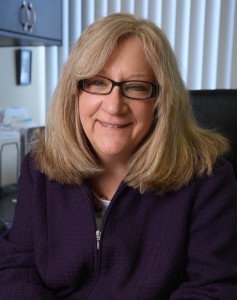 Sue, MPH ’80, has served as executive director of NAMI Minnesota, the National Alliance on Mental Illness, for the past 14 years. For over 30 years, she has been visioning, initiating, inspiring and guiding changes in policy, strategy and a continuum of services that resulted in significant improvements for persons with disabilities, students receiving special education, and children and adults with mental health conditions in Minnesota. She is a consistent and valuable voice for changes in public policies, creation of educational opportunities, and sparking support networks, helping to transform public attitudes and perceptions about people with mental illnesses. Sue serves as a preceptor for students taking Legislative Advocacy Skills for Public Health, and uses her knowledge and background to give students insight into policy making and changes, and to help them develop the skills necessary to operate in the area of public health practice.
Sue, MPH ’80, has served as executive director of NAMI Minnesota, the National Alliance on Mental Illness, for the past 14 years. For over 30 years, she has been visioning, initiating, inspiring and guiding changes in policy, strategy and a continuum of services that resulted in significant improvements for persons with disabilities, students receiving special education, and children and adults with mental health conditions in Minnesota. She is a consistent and valuable voice for changes in public policies, creation of educational opportunities, and sparking support networks, helping to transform public attitudes and perceptions about people with mental illnesses. Sue serves as a preceptor for students taking Legislative Advocacy Skills for Public Health, and uses her knowledge and background to give students insight into policy making and changes, and to help them develop the skills necessary to operate in the area of public health practice.
Jason V. Baker, MD, MS
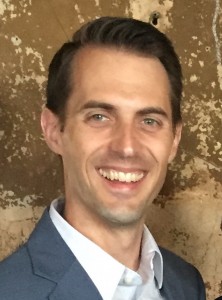 Jason, MS ’07, is an associate professor of medicine at the University of Minnesota and practices clinical infectious diseases and HIV medicine at Hennepin County Medical Center (HCMC). His research program at HCMC, funded by the NIA and many other organizations, involves translational clinical studies emphasizing persistent immune depletion, inflammation and coagulation abnormalities among HIV+ patients. It is through this work that he engages with many SPH faculty from the Division of Biostatistics. As a member of the INSIGHT Scientific Steering Committee, he served as a site host for the recently conducted SMART and START trials in coordination with the School’s Coordinating Centers for Biometric Research, and he has co-authored several papers on inflammation, coagulation and non-AIDS morbidity and mortality with Division staff and students.
Jason, MS ’07, is an associate professor of medicine at the University of Minnesota and practices clinical infectious diseases and HIV medicine at Hennepin County Medical Center (HCMC). His research program at HCMC, funded by the NIA and many other organizations, involves translational clinical studies emphasizing persistent immune depletion, inflammation and coagulation abnormalities among HIV+ patients. It is through this work that he engages with many SPH faculty from the Division of Biostatistics. As a member of the INSIGHT Scientific Steering Committee, he served as a site host for the recently conducted SMART and START trials in coordination with the School’s Coordinating Centers for Biometric Research, and he has co-authored several papers on inflammation, coagulation and non-AIDS morbidity and mortality with Division staff and students.
Debra Thingstad Boe, MPH
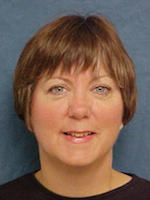 Debra, MPH ’06, is an employee of Dakota County Public Health where she has worked for the past 28 years. She has fulfilled many roles in meeting the needs of the community, from public health nurse visits and group education for homeless families, to supervision and management of programs, including WIC. She has a passion for quality improvement, diversity and inclusion, and thrives on working with SPH to help develop the next generation of public health professionals, and to focus on efforts recognizing breastfeeding as a critical public health issue. A partner with the School’s public health nutrition program, she provides field experiences for students and devotes countless hours to mentoring. Her experiences and opportunities as an MPH student helped forge her determination to create an environment where public health helps change lives now and into the future.
Debra, MPH ’06, is an employee of Dakota County Public Health where she has worked for the past 28 years. She has fulfilled many roles in meeting the needs of the community, from public health nurse visits and group education for homeless families, to supervision and management of programs, including WIC. She has a passion for quality improvement, diversity and inclusion, and thrives on working with SPH to help develop the next generation of public health professionals, and to focus on efforts recognizing breastfeeding as a critical public health issue. A partner with the School’s public health nutrition program, she provides field experiences for students and devotes countless hours to mentoring. Her experiences and opportunities as an MPH student helped forge her determination to create an environment where public health helps change lives now and into the future.
James L. Craig, MD
 For more than 30 years, Jim served as corporate medical director and vice president and director of health and human services at General Mills, and today, continues a part-time practice in occupational medicine. Throughout his career and beyond, Jim has been an outstanding contributor to the Division of Environmental Health Sciences, the School of Public Health, the University, and to the community. He is a founding member of the Midwest Center for Occupational Health and Safety Education and Research Center, through which he has mentored several students in the occupational and environmental health medicine program and facilitated several placements for students in field experiences and in professional roles. He continues to serve as a member of the Center’s advisory board, bringing sage advice to the federal funding and grant renewal processes. In addition to time and expertise, Jim and his wife Bobbi have long supported SPH students through three endowed scholarships given on an annual basis.
For more than 30 years, Jim served as corporate medical director and vice president and director of health and human services at General Mills, and today, continues a part-time practice in occupational medicine. Throughout his career and beyond, Jim has been an outstanding contributor to the Division of Environmental Health Sciences, the School of Public Health, the University, and to the community. He is a founding member of the Midwest Center for Occupational Health and Safety Education and Research Center, through which he has mentored several students in the occupational and environmental health medicine program and facilitated several placements for students in field experiences and in professional roles. He continues to serve as a member of the Center’s advisory board, bringing sage advice to the federal funding and grant renewal processes. In addition to time and expertise, Jim and his wife Bobbi have long supported SPH students through three endowed scholarships given on an annual basis.
Erin Huppert
 Erin Huppert is a public policy specialist at Allina Health, where she is responsible for issues management, policy development and external relations for Allina’s state and federal portfolio. Her primary subject areas include public health and health care payment reform, with a special focus on policy strategies that catalyze improved population health. Prior to her tenure with Allina, Erin worked for the Minnesota House of Representatives covering issues ranging from public safety to state government finance. Erin serves as a preceptor for students in the Legislative Advocacy Skills for Public Health class where she provides an excellent experience for our students. Students learn first-hand about the state legislative process and have an opportunity to analyze the occurrence, progress and resolution of legislative issues of public health importance and advocacy under Erin’s guidance and direction.
Erin Huppert is a public policy specialist at Allina Health, where she is responsible for issues management, policy development and external relations for Allina’s state and federal portfolio. Her primary subject areas include public health and health care payment reform, with a special focus on policy strategies that catalyze improved population health. Prior to her tenure with Allina, Erin worked for the Minnesota House of Representatives covering issues ranging from public safety to state government finance. Erin serves as a preceptor for students in the Legislative Advocacy Skills for Public Health class where she provides an excellent experience for our students. Students learn first-hand about the state legislative process and have an opportunity to analyze the occurrence, progress and resolution of legislative issues of public health importance and advocacy under Erin’s guidance and direction.
Tracy Keibler
 Tracy is the executive director of ApparentPlan, a health promotion and advocacy organization for older adults. She was nominated by both School’s Minnesota Chair on Long-term Care and Aging and SPH Professor in Health Policy and Management for her active work with the Long-Term Care Rethink Tank. Her contributions at the National Council on Aging in Washington, DC, as vice chair of the Minnesota Board on Aging and as an advocate span the spectrum of aging from direct care to public policy at the national, state and local levels. This breadth of service makes her a valuable asset to the Rethink Tank’s mission: changing the way long-term care is viewed by the public and promoting more desirable ways to deliver those services.
Tracy is the executive director of ApparentPlan, a health promotion and advocacy organization for older adults. She was nominated by both School’s Minnesota Chair on Long-term Care and Aging and SPH Professor in Health Policy and Management for her active work with the Long-Term Care Rethink Tank. Her contributions at the National Council on Aging in Washington, DC, as vice chair of the Minnesota Board on Aging and as an advocate span the spectrum of aging from direct care to public policy at the national, state and local levels. This breadth of service makes her a valuable asset to the Rethink Tank’s mission: changing the way long-term care is viewed by the public and promoting more desirable ways to deliver those services.
David F. Neitzel, MS
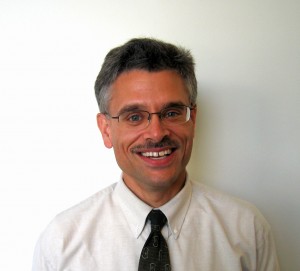 Dave, MS ’90, supervises the Vectorborne Disease Unit at the Minnesota Department of Health. He has been working on disease issues related to ticks and mosquitoes in Minnesota for the past 31 years. He has supervised many student workers and interns over the years and has always made it a priority to mentor the next generation of public health professionals. During his nearly 20 years at MDH and as a past President of the National Association of Vectorborne Disease Control Officials, he has seen the importance of having skilled people in place when the next “new” disease outbreak occurs (e.g., West Nile virus, Zika virus). “Skilled and motivated people are the key to providing timely and effective public health services.”
Dave, MS ’90, supervises the Vectorborne Disease Unit at the Minnesota Department of Health. He has been working on disease issues related to ticks and mosquitoes in Minnesota for the past 31 years. He has supervised many student workers and interns over the years and has always made it a priority to mentor the next generation of public health professionals. During his nearly 20 years at MDH and as a past President of the National Association of Vectorborne Disease Control Officials, he has seen the importance of having skilled people in place when the next “new” disease outbreak occurs (e.g., West Nile virus, Zika virus). “Skilled and motivated people are the key to providing timely and effective public health services.”
Dawn Simonson
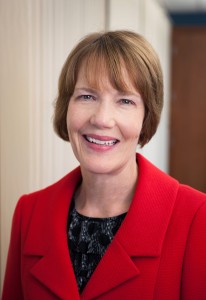 Dawn is the Executive Director of the Metropolitan Area Agency on Aging, serving the Minneapolis and St. Paul region. With more than 20 years of experience in the field of aging, Dawn was nominated by the Division of Health Policy and Management for her leadership and advocacy for integrating care delivery across health care and long-term services and supports. She is a respected voice in the aging policies and practices arena through her voluntary lead roles with the Minnesota Leadership Council on Aging, Minnesota’s ACT on Alzheimer’s initiative, Greater Twin Cities United Way, and Dementia Friendly America. Dawn’s dedication to the health, security, and independence of older adults living in community, and the well-being of their family caregivers, is foundational to her professional expertise and contributions. Her call to action is to understand what older adults and caregivers want and need to make their everyday lives better, and then to innovate and partner with others to build livable communities for all, regardless of age or ability.
Dawn is the Executive Director of the Metropolitan Area Agency on Aging, serving the Minneapolis and St. Paul region. With more than 20 years of experience in the field of aging, Dawn was nominated by the Division of Health Policy and Management for her leadership and advocacy for integrating care delivery across health care and long-term services and supports. She is a respected voice in the aging policies and practices arena through her voluntary lead roles with the Minnesota Leadership Council on Aging, Minnesota’s ACT on Alzheimer’s initiative, Greater Twin Cities United Way, and Dementia Friendly America. Dawn’s dedication to the health, security, and independence of older adults living in community, and the well-being of their family caregivers, is foundational to her professional expertise and contributions. Her call to action is to understand what older adults and caregivers want and need to make their everyday lives better, and then to innovate and partner with others to build livable communities for all, regardless of age or ability.
[divider line_type=”Small Line” custom_height=””]
Organization Award
 Clear Channel Outdoor
Clear Channel Outdoor
Clear Channel Outdoor demonstrates its role as a Twin Cities business leader through its rich collaboration with many nonprofit, educational and governmental organizations. By donating millions of dollars of public service advertising on its billboards, Clear Channel Outdoor positively affects the quality of life in Minneapolis & St. Paul, and helps various communities to be a better place to live. Such messages address challenges, big and small, on topics related to public health, safety, education, sustainability, and law enforcement. Through its partnership with the Minnesota Heart Heath Program (a joint endeavor of the School of Public Health and the Medical School), Clear Channel currently supports the “Ask About Aspirin” campaign, having donated billboards across the metro-area advertising the initiative, which promotes the use of low-dose aspirin to prevent first heart attacks or strokes. This partnership serves the Program well in its reach and ability to touch audiences outside electronic media and to further important public health messaging. In the past, Clear Channel also supported messaging for another large public health communications campaign on the H1N1 virus. The organization’s commitment to the public, and to the School of Public Health, is highly valued.
Agency Award
 Southside Community Health Services
Southside Community Health Services
Southside Community Health Services is a community clinic that has been providing access to primary health care services to underserved populations in the Twin Cities for over 45 years. Southside provides culturally competent medical, dental, vision, and behavioral health services to anyone in need and never turns anyone away due to inability to pay. In addition to traditional clinical services, Southside works to address the social determinants of health through innovative programs and strong community outreach. This is where Southside truly shines and has become an invaluable partner to the School of Public Health and many other organizations in the community. They have provided meaningful internship opportunities for countless students over the years and pioneered innovative programs such as training barbers and beauticians in the African American community about heart health and placing automated blood pressure kiosk machines in barber shops and beauty salons through their “Clippers ‘n Curls” program, teaching low-income fathers with elementary aged children to shop for healthy foods on limited budgets, plan meals in advance, and use safe and healthy food preparation techniques through their “Good Food Good Fathers” program, and providing free, healthy vegetables directly to patients on a weekly basis through their new “Produce Share/Prescription CSA” program. These opportunities and more, led by SPH alumni working at Southside, have created invaluable learning opportunities for our students and immeasurable benefits to our larger community.
Global Partner Award
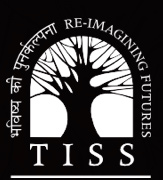 Centre for Public Health, Tata Institute of Social Sciences
Centre for Public Health, Tata Institute of Social Sciences
The Tata Institute of Social Sciences (TISS) was established in 1936. Since its inception, the vision of the TISS has been to be an institution of excellence in higher education that continually responds to changing social realities through the development and application of knowledge, towards creating a people-centered, ecologically sustainable and just society that promotes and protects dignity, equality, social justice and human rights for all. For more than six years, TISS has partnered with the School of Public Health to host an annual Program in Public Health in India, providing students an opportunity to study public health issues in Mumbai, one of the world’s most populous, dynamic regions in the world. The program introduces participants to complex adaptive public health systems as influenced by a broad range of factors and disciplines such as globalization and trade, economic growth, and socio-cultural context. In the same way, the School hosts TISS students each summer at its annual Summer Public Health Institute on the Twin Cities campus. This important partnership also provides an opportunity for faculty from the two institutions to work collaboratively on various projects, sharing knowledge and experience in tackling some of the world’s greatest public health challenges.

